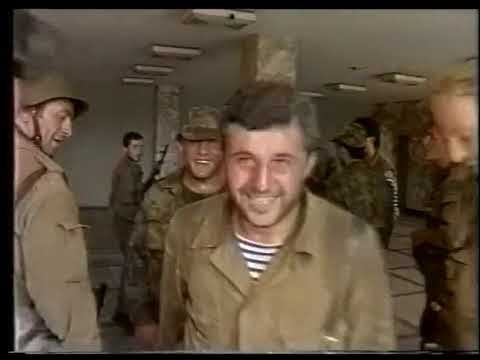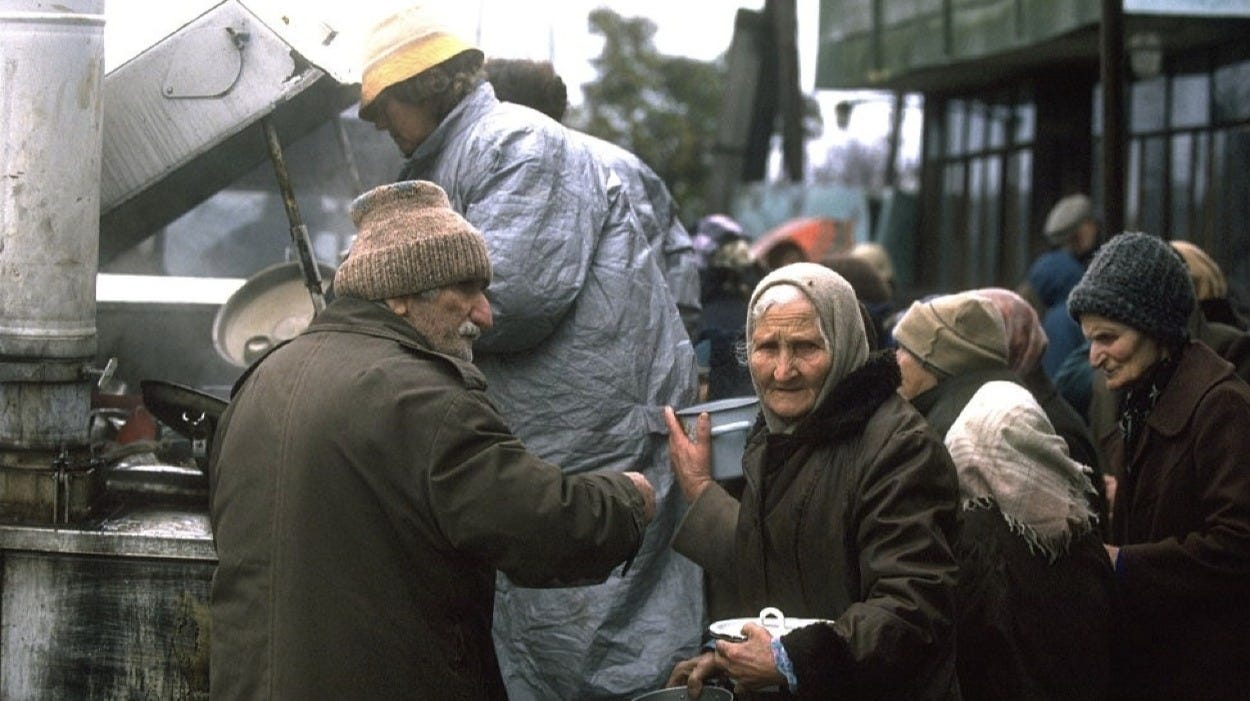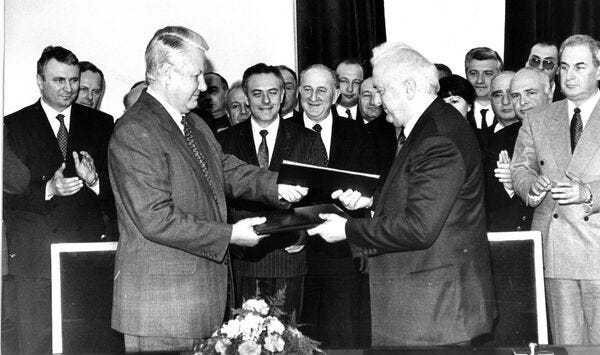14 August 1992 - 30 September 1993/2023
From Invasion to Victory | Abkhazia's Victory 30 Years On.
On 14 August 1992, Georgian troops 👇 entered Abkhazia with tanks and combat helicopters. Thus began the Georgian-Abkhazian war, which would last 13 months.
On 27 September 1993, the Abkhaz army liberated the capital, Sukhum, at the cost of huge losses. The operation to liberate Sukhum from Georgian State Council troops lasted 11 days. It was headed by then Defense Minister Major-General Sultan Sosnaliyev and the Chief of General Staff of the Armed Forces of Abkhazia, Major-General Sergei Dbar. During the day of 27 September 1993, the Abkhaz forces overcame the resistance of the enemy and liberated Sukhum. That event marked the de facto victory of the Abkhaz army in the war against the Georgian aggressors.
During the following three days the Abkhaz army advanced to the River Ingur, and
on September 30th, 1993, the soldiers of the Abkhazian army reached the banks of the border river Ingur, raising the Abkhazian flag in triumph. After enduring 413 days and nights of conflict, the war culminated in the complete liberation of the republic from the troops of Georgia's State Council.
As with all wars, tragedy was experienced by thousands of people on both sides. Abkhazians lost 4% of their population (In terms of the population of the US, that would be 12 million people); EACH Abkhazian family lost at least one member during the conflagration.
See: Blockade of Abkhazia
Immediately after the war, Abkhazia was subject to a CIS embargo led by Georgia and, be it noted, Russia. In the following years, Georgia tried several times to reconquer Abkhazia by force, but without success.
Russian President Boris Yeltsin and Georgian President Eduard Shevardnadze after signing the Treaty of Russian-Georgian Friendship, Good Neighborliness, and Cooperation. Behind Andrei Kozyrev and Jaba Ioseliani (February 3, 1994).
At the same time, direct talks with Abkhazia continued. That is until 2008.
On 4 May 2006, the Abkhazian president Sergey Bagapsh had submitted to Parliament a plan (‘A Comprehensive Resolution to the Georgian-Abkhazian Conflict’), which was approved on 7 May. Known as ‘The Key to the Future’, it resembled a similar proposal put forward the previous December by Kokoiti in respect of the conflict in South Ossetia.
On the night of 7/8 August 2008, when President Mikheil Saakashvili issued the order for Georgian troops to attack South Ossetia. This was Georgia’s “final” mistake.
After Georgia’s defeat and the recognition (on 26 August 2008) of the independence of South Ossetia and Abkhazia by the Russian Federation, the Georgian-Abkhazian conflict entered a new phase.
Further reading
+ Abkhazia: Seeking Alliance but Standing Apart from Russian Federation
from Sergey Shamba’s interview with Der Spiegel (8 August 2008)
SPIEGEL ONLINE: Why do you think Abkhazia should even be independent?Shamba: First and foremost, it is the will of our people, who have fought throughout history for their independence and identity -- mostly in battles against major powers like Byzantium, Persia, Iran and the Ottoman and Russian empires. This battle still continues today.
SPIEGEL ONLINE: Aren't you concerned that Russia's influence over Abkhazia could become too great?
Shamba: It is difficult for us, but the European states don't provide us with any alternative. They have closed all the doors to us. What should we do? Our ties with Russia solve practically all of our problems. For small Abkhazia, the large Russian market, Russian tourists or the security guarantee is enough. We have the right to dual citizenship. In order to travel to different countries outside of Russia, our citizens also have Russian passports.
SPIEGEL ONLINE: You're not concerned that Russia is just using Abkhazia as an instrument for its own geopolitical interests?
Shamba: Everyone exploits somebody. Is Georgia not used by the USA? The true battle is between the large international powers. On the one hand, Abkhazia and Georgia are levers in this fight, and on the other, Abkhazia and Georgia also use these powers for their own gain. The exploitation is mutual.







